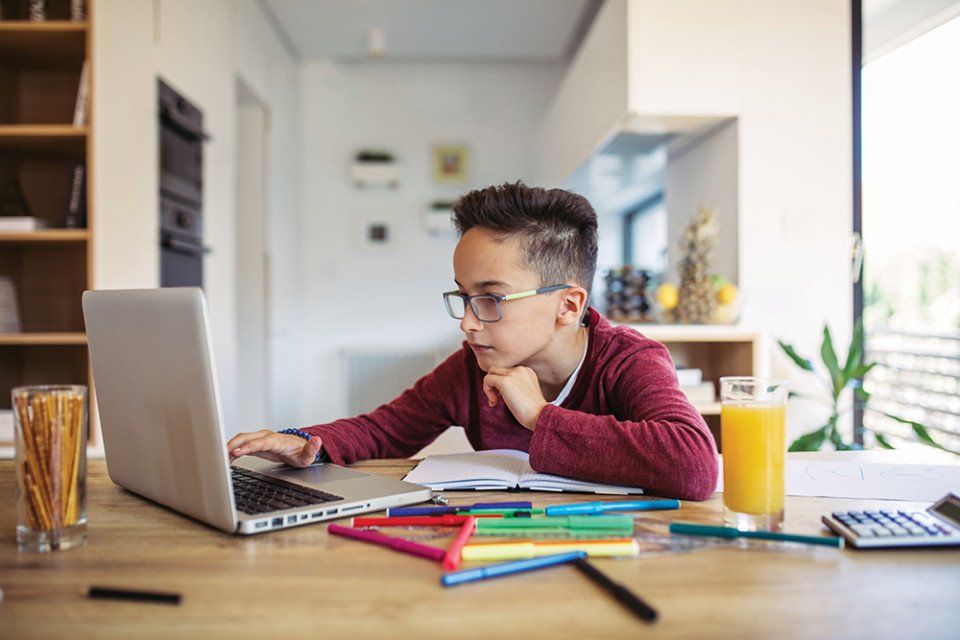How Philadelphia-Area Schools Are Adapting to Remote Learning

This past spring, students, teachers, parents and administrators from the Greater Philadelphia region all partook in one giant learning experiment—and not the kind that takes place in a science lab. Shifting the entire private school experience to a virtual one took resilience, ingenuity and a whole lot of patience, but after that trial by fire, campuses now stand more knowledgeable than ever about maximizing the advantages of online classrooms.
One of the first ways schools pivoted in remote learning was with the class schedule. While longer periods are ideal for in-person, experiential learning, it doesn’t always work for virtual education.
“We learned that 80 minutes is just too long to expect a student to stay on a computer,” says Holly Victor, an assistant director at Solebury School in New Hope, Pennsylvania. The school responded by shortening classes to 50 minutes, with the other 30 minutes reserved for flex time. “Flex time allows students to get their homework done, make an appointment with a teacher or just take a break from screen time.”
Other schools adapted by flipping how students learn—having them review materials first, followed by in-class instruction with the teacher. “Sometimes, it can be easy to default to having information spoon-fed to you, but in a virtual classroom, you need to own it more,” says Daniel Ranalli, an assistant principal at Saint Joseph’s Preparatory School in Philadelphia. “That is a great skill to have when you move on to college and beyond.”
Across the board, regional private schools saw remote learning as an opportunity to give students new, outside-the-box experiences. Schools offered students everything from professional cooking lessons to fun fitness classes to student-run virtual news programs to field trips around the world. “In pre-COVID times, it would have been impossible to pop over to Rome for a class period to talk to classical experts,” says Margaret Smith, a curriculum director at Friends Select School in Philadelphia.
Although not without its challenges, this particular learning experiment has resulted in some undeniable successes for private schools—emphasizing the advantages that come from small class sizes and advanced technologies.
“It gave us the impetus to incorporate other approaches to teaching that we might not have tried,” Ranalli explains. “There are aspects of virtual learning that can be utilized when we return to whatever becomes normal.”
Explore the many schooling options that the Philadelphia region has to offer with Find It Philly and Philadelphia magazine’s Private School Guide.
This post was produced and paid for by City Studio


